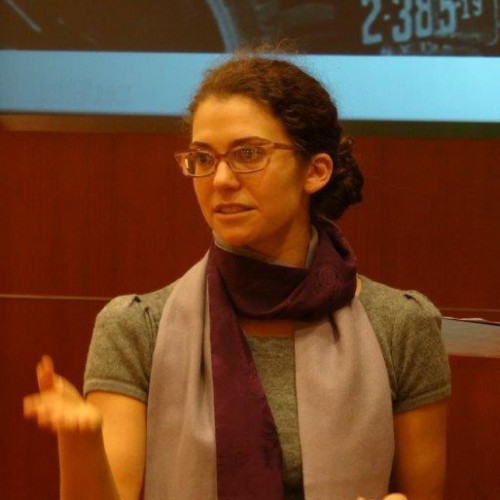|
|
Are you interested in learning about the top 10 sustainability leaders?
These remarkable individuals are revolutionizing how we approach sustainability efforts globally. From The Americas to Europe, the Middle East, Africa, India, Asia, and Australasia, these leaders are significantly impacting sectors like business, philanthropy, wildlife conservation, and climate resilience.
Their work spans renewable energy innovation, eco-friendly fashion entrepreneurship, sustainable agriculture advocacy, waste reduction expertise, and green technology vision.
Let’s dive into their inspiring stories and discover how they shape a more sustainable future.
Who Are the Top Sustainability Leaders?
The world is looking towards individuals and organizations who have become leaders in sustainability. These leaders are at the forefront of driving change and significantly contributing to creating a more sustainable future. They are thought leaders in sustainability and inspire others to take action.
What Is the Significance of Sustainability Leaders?
Sustainability leaders drive change for a better future. They lead global sustainability goals, prioritizing environmental, social, and governance (ESG) issues in their business practices.
Their unwavering dedication serves as a catalyst for change, inspiring individuals and businesses alike to take proactive steps towards sustainability. By integrating sustainable practices into their operations, they pave the way for others to follow, fostering a culture of environmental stewardship and social responsibility.
These leaders spearhead efforts in climate action, striving to mitigate the impacts of climate change through innovative solutions and advocacy. They also advocate for biodiversity conservation, recognizing the invaluable role of diverse ecosystems in sustaining life on Earth. Furthermore, their initiatives in resource preservation aim to ensure the long-term viability of essential resources, promoting a sustainable and resilient planet for generations to come.
Sustainability Leaders
Sustainability leaders are exceptional individuals and organizations making a significant impact on global efforts to create a more sustainable and environmentally conscious world. They are at the forefront of driving change, inspiring action, and prioritizing environmental, social, and governance (ESG) issues in their business practices.
These leaders are pivotal in addressing critical challenges such as climate action, biodiversity conservation, and resource preservation, contributing to a more sustainable planet.
1. Pratik Raval – Tata Consultancy Services (TCS)

- Has a strong history of leveraging ESG and sustainability for product and service innovation and business transformation.
- As a corporate climate solutions leader, he is crucial in addressing climate and sustainability challenges.
- Shares his expertise by lecturing at universities to educate and inspire future changemakers in the field.
- Active podcast engagement, sharing valuable insights on policies, new data findings, and navigating resources in the ESG and sustainability space.
2. Kate Brandt – Google

- Leads sustainability initiatives across Google’s global operations, products, and supply chains.
- Ensures opportunities for advancing sustainability are pursued, supporting circular economy initiatives, environmental efforts, and insights on climate change.
- Dedicated to helping one billion people make more sustainable choices in their daily lives through small actions at scale.
- Serves on the boards of EVgo, BSR, Restor, and the Corporate Eco Forum, while actively sharing projects within Google and promoting the use of technology for good.
3. Sophia Leonora Mendelsohn – Cognizant

- A true futurist working to help businesses profit without compromising ESG principles.
- Advocates for engaging and training employees in sustainability, emphasizing its fundamental role.
- Influenced the global aviation industry’s response to the climate crisis during her time at JetBlue Airways.
- Designed and taught the first ESG program at Harvard Extension School, winning awards for climate leadership.
4. Carlos Eduardo Marques – NINT

- As an ESG Analyst at NINT, Marques works on the Investors for the Climate initiative, engaging investors in climate agendas and developing taxonomies and frameworks for the Brazilian government.
- Applies his background in sustainable finance to analyze companies and projects within national and international ESG parameters.
- Provides informative posts on strategies, opportunities, and the importance of CEOs integrating climate change into their agendas.
- Founded the voluntary organization Ambiafro to bring social impact to society.
5. Mohamed Jameel Al Ramahi – CEO, Masdar

- Joined Masdar in 2008 and has since led the company’s growth as a global clean energy powerhouse.
- Appointed as CEO in 2016, Al Ramahi’s leadership has driven Masdar to become one of the fastest-growing renewable energy companies globally.
- Masdar now boasts a global project portfolio with 15 gigawatts of clean energy capacity and over US$20 billion in investments.
- Actively promotes international cooperation in the fields of business and sustainability, participating in groups like the Sustainable Markets Initiative Taskforce for Energy Transition.
6. Anna Alex – Co-Founder, Planetly

- Co-founded Planetly, a climate tech company focusing on developing digital tools for companies to analyze, reduce, and compensate their CO2 emissions.
- An advocate for leveraging data and technology to provide transparency of CO2 footprints and actionable steps for reduction.
- Shares insights and positive news from the climate sector to inspire sustainability.
7. Edna Odhiambo – Independent Climate Consultant

- An Independent Climate Consultant for over a decade, specializing in issues like leveraging sustainability for profit, clean energy, sustainable transport, climate finance, and sustainable planning.
- Supports various sectors, including the private sector, philanthropies, and government, to communicate solutions that benefit people, the planet, and profit.
8. Ahmed Samir Elbermbali – Sustainability Market Leader, Bureau Veritas Group

- Named the 2022 LinkedIn Top Voice Green MENA for his focus on the technical and business aspects of clean energy.
- Passionate about zero emission vehicles and actively promotes the Zero Emissions Vehicle Declaration of COP26.
- Helps regional clients at Bureau Veritas navigate their journeys to net zero and shares insights on clean energy and sustainable mobility.
9. Elizabeth Wathuti – Founder and President, Green Generation Initiative

- A grassroots climate activist advocating for climate justice through sustainability, clean energy, and reforestation.
- Urges governments to set more ambitious climate justice targets and sustainability goals.
- Raises awareness about the impact of global temperature increases in Kenya and the need for swift climate action.
10. Mun Ching Yap – CSO, AirAsia
- Leads the group’s sustainability portfolio, focusing on climate change and diversity.
- Supports social enterprises through the AirAsia Foundation, providing capital, mentorship, and market access.
- Aims to reshape how businesses contribute to society and tackle the industry’s top sustainability challenges.
Renewable Energy Innovators
Human activities, like releasing carbon dioxide and other greenhouse gases, are a major cause of climate change, making it one of the world’s urgent problems. Throughout Earth’s history, there has been a strong connection between global temperatures and the amount of greenhouse gases, particularly CO2, in the atmosphere.
To fix this, we need to change the way we get energy. Instead of using fossil fuels, we should use cleaner sources like nuclear and renewable energy from the sun and wind. This will help reduce pollution and make the world a better, healthier place for everyone. That’s why we need leaders who can make this happen.
Certainly, here are some companies and their CEOs who are known for practicing renewable energy and sustainability in their organizations:
- Tesla, Inc.
- CEO: Elon Musk
- Tesla is a prominent electric vehicle manufacturer and sustainable energy company, known for producing electric cars, solar products, and energy storage solutions.
- Amazon
- CEO: Andy Jassy (as of my knowledge cutoff date in January 2022)
- Amazon is committed to sustainability and has invested in renewable energy projects and initiatives to power its data centers and operations.
- Apple Inc.
- CEO: Tim Cook
- Apple has been dedicated to powering its operations with 100% renewable energy and reducing its carbon footprint.
- Google
- CEO: Sundar Pichai
- Google, a subsidiary of Alphabet Inc., has made substantial investments in renewable energy and is a major consumer of green power.
- Vestas Wind Systems A/S
- CEO: Henrik Andersen
- Vestas is a leading manufacturer of wind turbines and is actively involved in the wind energy sector.
- NextEra Energy, Inc.
- CEO: James Robo
- NextEra Energy is one of the world’s largest renewable energy companies, with a focus on wind and solar energy generation.
These sustainability leaders are just a few examples of the remarkable individuals driving innovation in renewable energy. Their dedication and commitment to creating a sustainable future make them pioneers.
Sustainable Agriculture Advocates
Regarding sustainable agriculture, you can learn a lot from the advocates leading the way in promoting regenerative practices and ensuring food security for future generations. Through a sustainability survey, these sustainability leaders have been identified as thought leaders and sustainability champions in sustainable agriculture.
They understand the importance of biodiversity and its role in creating resilient and productive agricultural systems.
Here are some companies and their CEOs that practice sustainable agriculture, along with their contributions to sustainability:
- General Mills, Inc.
- CEO: Jeffrey L. Harmening
- General Mills is dedicated to sustainable sourcing of ingredients, focusing on regenerative agriculture practices. They have committed to advancing soil health and biodiversity.
- Danone S.A.
- CEO: Antoine de Saint-Affrique
- Danone is known for its commitment to regenerative agriculture, emphasizing soil health, and working with farmers to promote sustainable farming practices.
- Unilever
- CEO: Alan Jope
- Unilever has pledged to source all its agricultural raw materials sustainably by 2020 and has made strides in reducing its environmental impact.
- Cargill, Inc.
- CEO: David MacLennan
- Cargill is involved in sustainable agriculture initiatives, working on responsible supply chains, farmer support, and deforestation prevention.
- Mars, Inc.
- CEO: Grant F. Reid
- Mars has set ambitious sustainability goals, including sustainable sourcing of cocoa and palm oil, as well as promoting climate-smart agriculture.
- Nestlé S.A.
- CEO: Ulf Mark Schneider
- Nestlé is committed to responsible sourcing of agricultural raw materials, supporting farmers and promoting sustainable agriculture practices.
- Archer Daniels Midland (ADM)
- CEO: Juan Luciano
- ADM works on sustainable agriculture initiatives, focusing on responsible sourcing, biodiversity, and supporting farmers in adopting eco-friendly practices.
These sustainability advocates serve as inspiration for farmers around the world who are looking to transition toward more sustainable agricultural practices. Their dedication to promoting biodiversity and sustainable agriculture ensures that future generations can access healthy and nutritious food while preserving our planet’s natural resources.
Waste Reduction Experts
Waste reduction experts and their organizations are pivotal in the global push to minimize waste and promote recycling, while adopting circular economy principles. Their contributions to sustainability are multi-faceted:
- Recycling Advocacy: They champion recycling programs, reducing waste sent to landfills.
- Circular Economy Strategies: These experts implement strategies for reusing, remanufacturing, and recycling, extending product lifecycles.
- Innovative Technologies: Leveraging waste-to-energy solutions and advanced sorting, they extract value from waste streams.
- Educational Outreach: Through community, industry, and government engagement, they raise awareness and promote responsible waste management.
Here are the top leaders in waste reduction:
- Waste Management, Inc.
- CEO: James C. Fish Jr.
- Waste Management is a leader in waste reduction, recycling, and sustainable waste management practices. They promote recycling, energy recovery, and waste-to-resource initiatives.
- Republic Services, Inc.
- CEO: Donald W. Slager
- Republic Services focuses on reducing waste sent to landfills and increasing recycling rates. They invest in modernizing waste collection and disposal methods.
- Covanta
- CEO: Michael Ranger
- Covanta specializes in waste-to-energy solutions, converting waste into renewable energy while minimizing landfill disposal.
- Veolia Environnement S.A.
- CEO: Antoine Frérot
- Veolia offers waste management services and is dedicated to reducing waste generation and promoting recycling and circular economy practices.
- Suez
- CEO: Bertrand Camus
- Suez focuses on sustainable resource management and waste reduction, helping communities and industries minimize waste and optimize resource use.
How Can Organizations Become Sustainability Leaders?
Becoming a sustainability leader requires strategic planning and a long-term commitment to sustainability. Organizations can follow several steps to become sustainability leaders:
- Set ambitious sustainability goals: Organizations must define clear and measurable goals aligned with the Sustainable Development Goals and other global sustainability targets.
- Integrate sustainability into the company’s DNA: Sustainability should be embedded within the organization’s culture and operations. It should be a part of the decision-making process and supply chain management.
- Collaborate with other sustainability leaders: Partnerships and collaborations with other sustainability leaders can amplify the impact of sustainability initiatives and create a network of change-makers.
- Incorporate sustainability into the supply chain: Sustainable sourcing, responsible production practices, and efficient resource management are essential for organizations aiming to become sustainability leaders.
By following these steps, organizations can become recognized sustainability leaders and contribute to the global sustainability agenda.
What Are the Future Goals and Initiatives of Sustainability Leaders?
Sustainability leaders are paving the way for a more sustainable future by setting ambitious goals and spearheading impactful initiatives.
Looking ahead to the year 2030, these leaders are committed to aligning their efforts with the global sustainability agenda, ensuring that their actions contribute to achieving overarching sustainability targets. Some of the key future goals and initiatives of sustainability leaders include:
1. Investing in Sustainable Projects: Sustainability leaders are prioritizing investments in projects and initiatives that promote environmental sustainability and drive the transition towards a greener future. These investments may include funding renewable energy projects, supporting sustainable agriculture practices, and investing in eco-friendly technologies.
2. Collaboration with NGOs and Stakeholders: Recognizing the importance of collaboration and collective action, sustainability leaders are actively engaging with non-governmental organizations (NGOs), government agencies, businesses, and other stakeholders to pool resources and expertise. Working together can amplify their impact and address sustainability challenges more effectively.
3. Prioritizing Climate Action: Climate change remains one of the most pressing challenges of our time, and sustainability leaders are taking proactive measures to address it. This includes reducing greenhouse gas emissions across their operations, investing in renewable energy sources such as solar and wind power, and advocating for policies that support climate mitigation and adaptation efforts.
4. Focusing on Biodiversity Conservation: Protecting biodiversity is essential for maintaining healthy ecosystems and ensuring the long-term sustainability of our planet. Sustainability leaders are committed to conserving biodiversity by implementing practices that minimize habitat destruction, promoting sustainable land use and resource management, and supporting initiatives aimed at preserving endangered species and ecosystems.
5. Addressing Water Scarcity: Water scarcity is a growing concern in many parts of the world, and sustainability leaders recognize the need to address this issue urgently. They are implementing water conservation measures, investing in technologies for water reuse and recycling, and supporting community-based water management initiatives to ensure access to clean and safe water for all.
By focusing on these future goals and initiatives, sustainability leaders are driving positive change and contributing to the achievement of the Sustainable Development Goals (SDGs). Their efforts are instrumental in fostering a greener global economy and building a more sustainable world for future generations.
Frequently Asked Questions
The full sustainability leaders are selected through a comprehensive survey conducted by experts in the field of sustainability. The survey evaluates environmental sustainability, corporate leadership, business models, commitment to net zero, diversity and inclusion, and promise to action.
A sustainability leader means that a company or organization is recognized as one of the world’s leading entities in addressing environmental issues and promoting sustainable practices. It demonstrates a commitment to creating a sustainable future and sets an example for others.
Corporate sustainability leadership is crucial in creating a sustainable future by promoting and implementing sustainable business practices. It involves integrating environmental and social considerations into business strategies and positively impacting the environment and society.
Sustainability leaders face challenges such as finding innovative solutions to environmental issues, ensuring air quality and reducing emissions, addressing diversity and inclusion, and navigating the complex sustainability landscape.
Being a sustainability leader offers several benefits for a company or organization. It enhances brand reputation, attracts environmentally conscious customers, improves corporate social responsibility, and contributes to long-term business success in sustainability.
Sustainability leaders play a significant role in meeting sustainability goals set by the United Nations. They act as role models and inspire other companies to adopt sustainable practices. Their efforts contribute to the achievement of the United Nations’ sustainability targets.
To become a sustainability leader, a company needs to demonstrate a solid commitment to environmental sustainability, implement sustainable business models, prioritize corporate social responsibility, and actively work towards achieving sustainability targets set by the global community.
Sustainability leadership contributes to a sustainable future by driving innovation, promoting responsible business practices, fostering partnerships, and creating positive change in the business and environmental landscape. It sets an example for other companies to follow and builds momentum for sustainability.
Conclusion
The world is privileged to witness the remarkable contributions of top sustainability leaders who are driving positive change on a global scale. These visionaries are pioneers in various fields, from renewable energy and sustainable agriculture to waste reduction, green technology, and eco-friendly fashion.
They are at the forefront of inspiring action, setting ambitious goals for 2030 and beyond, and collaborating with diverse stakeholders, including NGOs. Their efforts align with the global sustainability agenda, tackling critical environmental and social challenges, including climate change, biodiversity conservation, and resource preservation.
These sustainability leaders exemplify the power of innovation, dedication, and collaboration in shaping a more sustainable and prosperous future for all.












